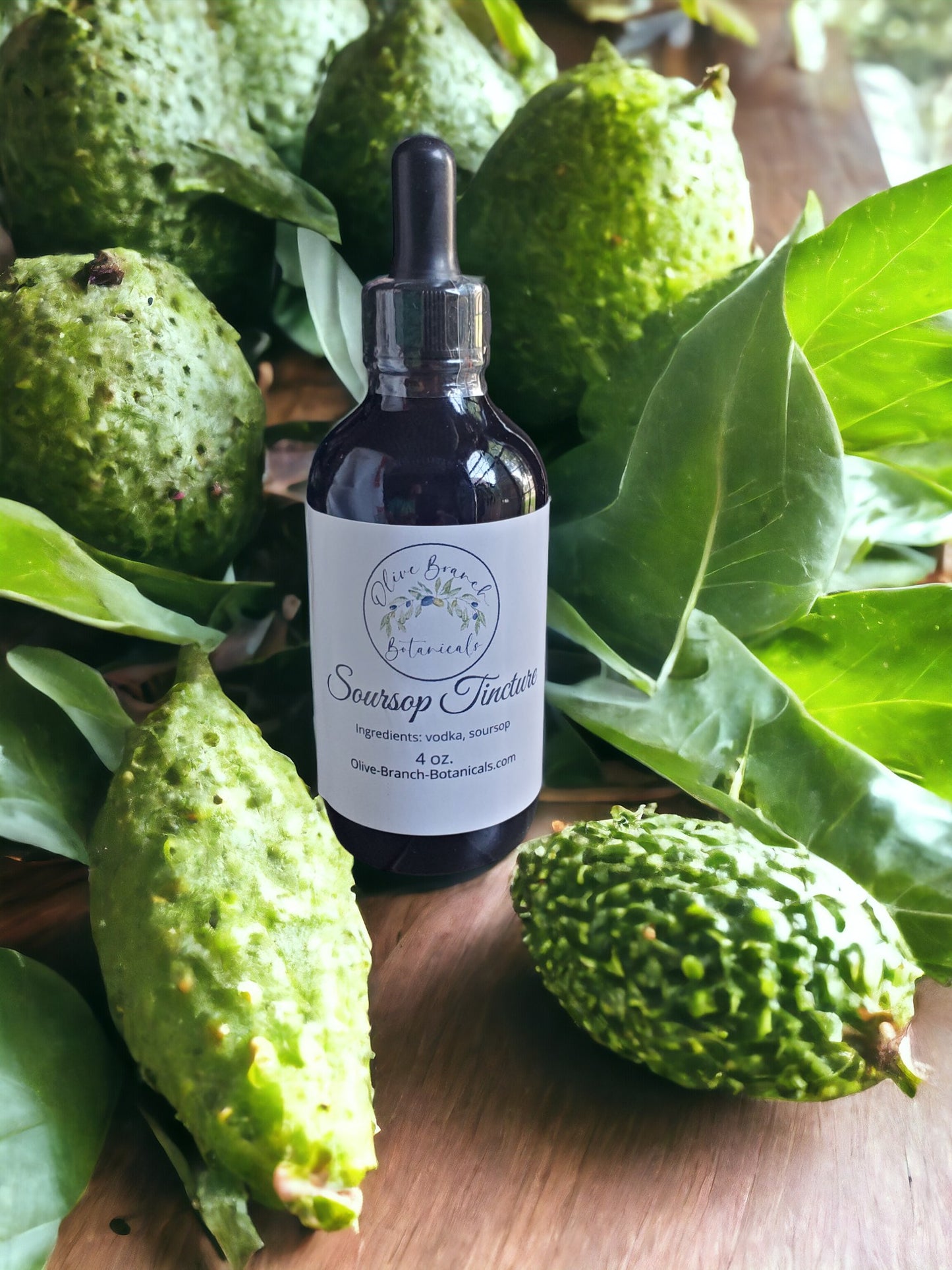Olive Branch Botanicals
Soursop Tincture
Soursop Tincture
Couldn't load pickup availability
As a potential cancer treatment, Soursop Tincture contains compounds that can induce apoptosis in cancer cells through multiple mechanisms, including the disruption of mitochondrial membrane potential and activation of caspases. These features make it a promising option in cancer research.
Soursop and Apoptosis in Cancer Treatment
Apoptosis, or programmed cell death, is a vital process that allows the body to remove damaged or unwanted cells in an orderly and controlled manner. Cancer cells often evade apoptosis, allowing them to grow uncontrollably and form tumors. The potential of soursop (Annona muricata) to induce apoptosis in cancer cells has garnered significant attention in cancer research.
Mechanisms of Apoptosis Induction by Soursop
Mitochondrial Pathway: Soursop compounds, particularly acetogenins, can disrupt the mitochondrial membrane potential, leading to the release of cytochrome c. This release activates caspases, a family of enzymes that play a crucial role in the execution phase of apoptosis.
Death Receptor Pathway: Some studies suggest that soursop extracts can enhance the expression of death receptors on the surface of cancer cells. These receptors, when activated, initiate a cascade that leads to cell death.
Inhibition of Anti-apoptotic Proteins: Soursop has been found to downregulate the expression of anti-apoptotic proteins such as Bcl-2 and upregulate pro-apoptotic proteins like Bax. This shift in the balance of these proteins favors apoptosis.
Generation of Reactive Oxygen Species (ROS): Soursop induces the generation of ROS within cancer cells. Increased ROS levels can damage cellular components, leading to the activation of the apoptotic pathway.
Specific Cancer Studies and Findings
Breast Cancer:
A study published in the "Journal of Ethnopharmacology" demonstrated that soursop extract induced apoptosis in breast cancer cells by increasing the expression of pro-apoptotic proteins and decreasing the expression of anti-apoptotic proteins.
The study also noted that soursop extract caused cell cycle arrest, which prevented the proliferation of breast cancer cells.
Prostate Cancer:
Research in "Nutrition and Cancer" found that soursop extract could induce apoptosis in prostate cancer cells through the mitochondrial pathway. The extract triggered the release of cytochrome c and activated caspases, leading to cell death.
The study highlighted that soursop extract could also sensitize prostate cancer cells to chemotherapeutic agents, potentially enhancing the efficacy of conventional treatments.
Liver Cancer:
In a study on hepatocellular carcinoma cells, soursop extract was shown to induce apoptosis by increasing ROS production and activating the mitochondrial pathway.
The extract also inhibited the proliferation of liver cancer cells by causing cell cycle arrest.
Pancreatic Cancer:
A study published in "Cancer Letters" reported that soursop extract induced apoptosis in pancreatic cancer cells by disrupting the mitochondrial membrane potential and activating caspases.
The researchers suggested that soursop could be a promising agent in the treatment of pancreatic cancer, one of the most aggressive and difficult-to-treat cancers.
Conclusion
Soursop has shown considerable potential in inducing apoptosis in various types of cancer cells, offering a promising avenue for cancer treatment research. The ability of soursop compounds to activate both the intrinsic (mitochondrial) and extrinsic (death receptor) pathways of apoptosis highlights its multifaceted approach in targeting cancer cells.
Share


